Seeking Asylum in the E.U.
Refugees Flee War-torn Syria | Greece (EU) June 2017
Go to Photo GalleryIn 2011, the Arab Spring anti-government uprisings spread across several mostly Muslim countries in the Middle East. These protests resulted in regime changes for some countries such as Tunisia, Egypt, and Libya, but in Syria, the protests had the opposite effect, causing harsh government crackdowns, increased instability and oppression, and a devastating civil war. This resulted in the most massive migration of displaced people since World War II. The bloody civil war is now in its tenth year. It is impossible to know just how many Syrian have been killed in the conflict, but the Syrian Observatory for Human Rights (SOHR) based in the UK, estimated the death toll to be as high as 511,000 as of March 2018. An estimated 400,000 have been killed. Additionally, 6.6 million people have been displaced, and another 6.5 million have been forced to flee to other countries, according to a report by the United Nations (UNHCR).
The Syrian war, as well as conflicts in Iraq and Afghanistan, have caused a massive migration of people to seek refuge in Western Europe.
Starting in 2015, millions of refugees began arriving in Greece — the main entry point for asylum in the European Union (EU). Most arrived by boat from Turkey. As Greek authorities tried to regulate the flow of refugees, the situation reached emergency proportions, and the EU reached an agreement with Turkey in 2016 designed to curb the influx of refugees.
Greece has been suffering from an economic crisis even before the migrants arrived, with high unemployment. Increasingly, some Greeks have grown weary of their role in the migration crisis and the burden it has placed on tourism and the struggling economy.
In 2020, there are still 50,000-plus refugees living in Greece.
Watch: The World Arrived at Our Doorstep
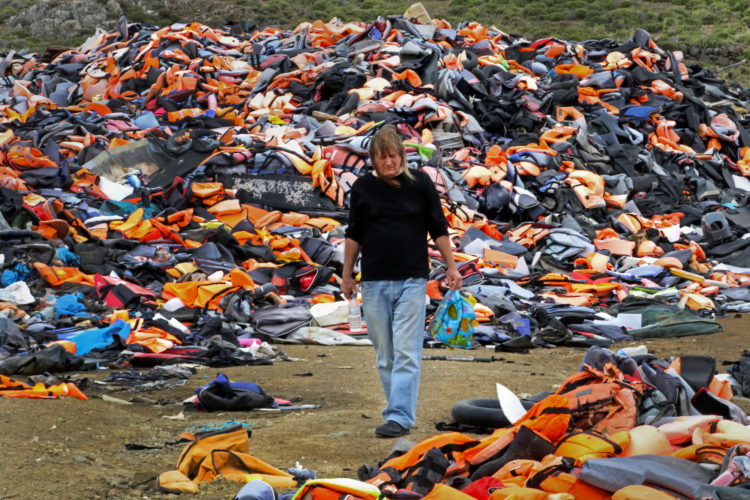
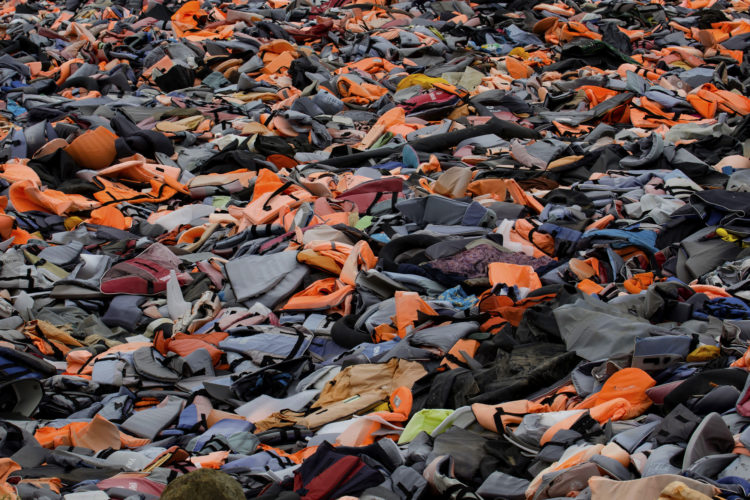
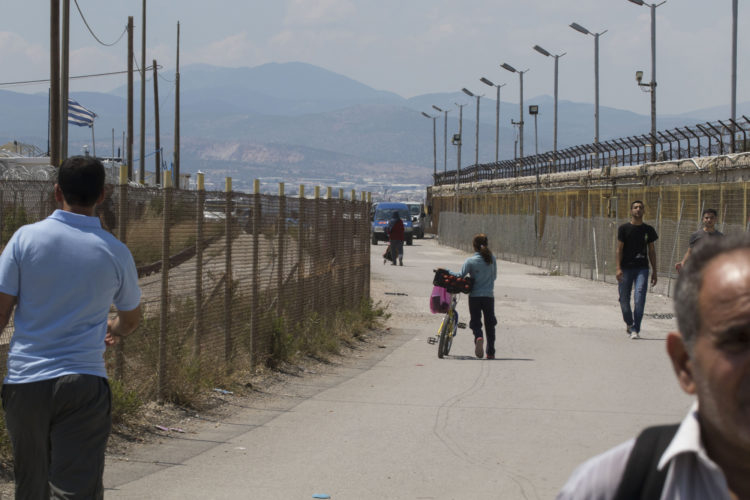
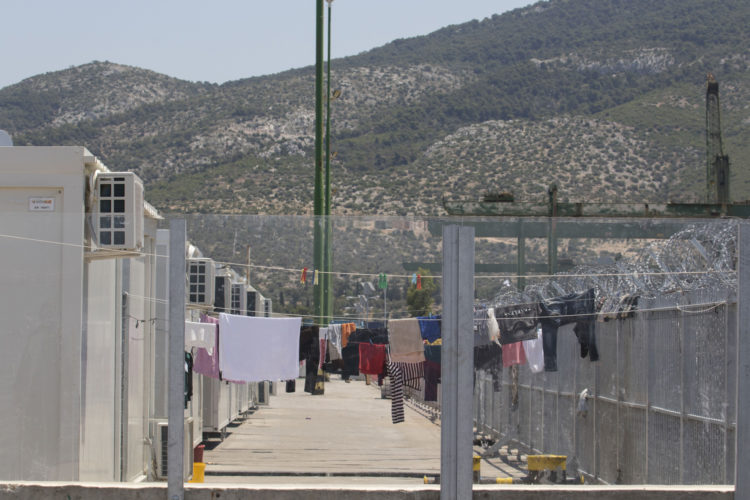
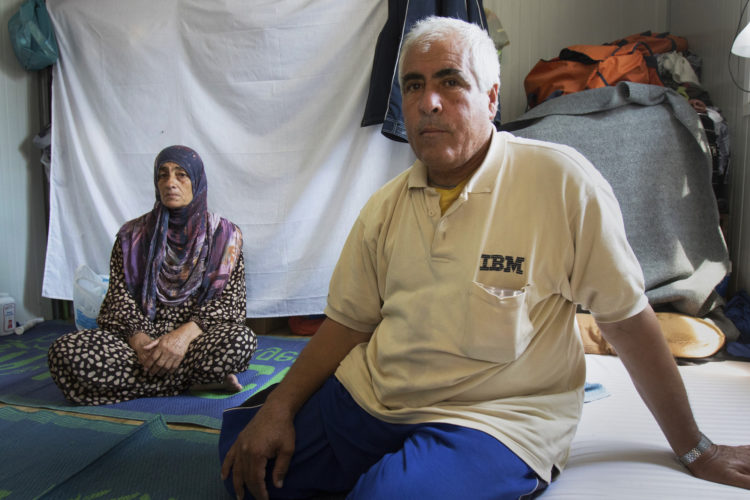
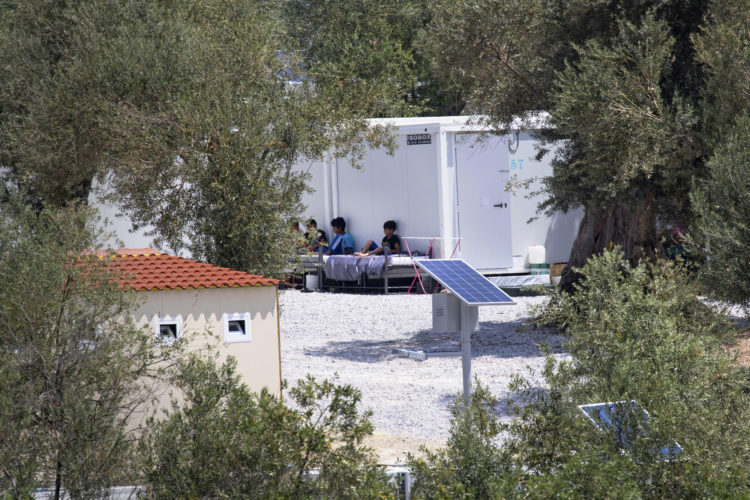
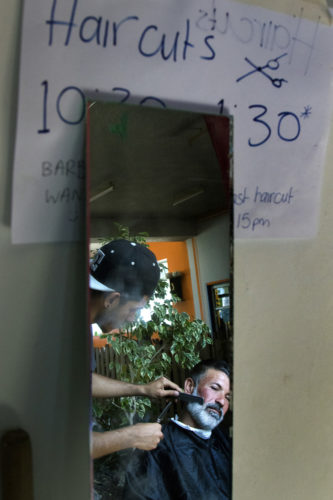
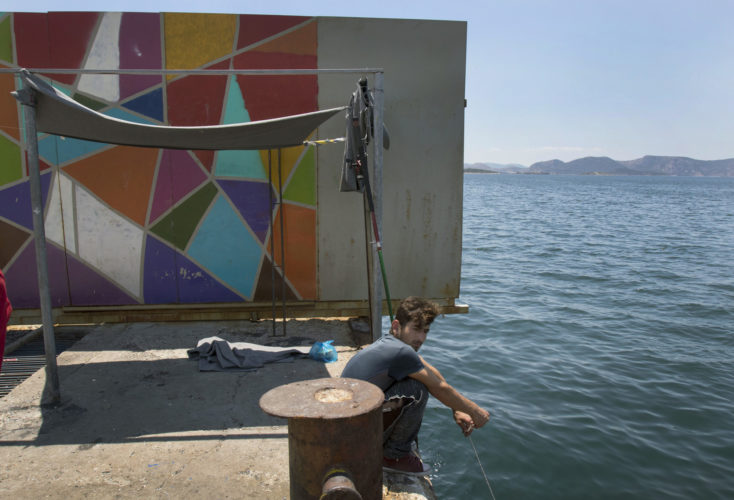
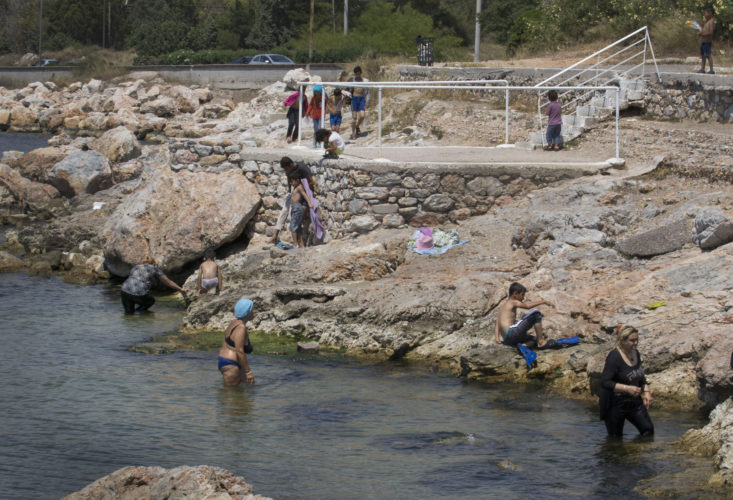
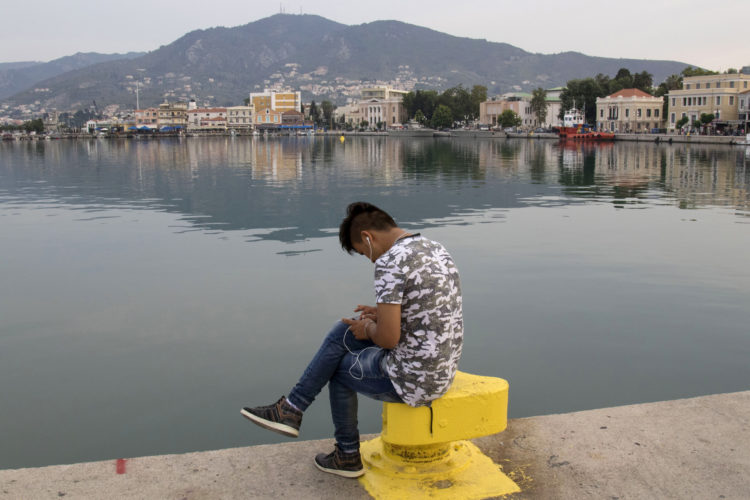
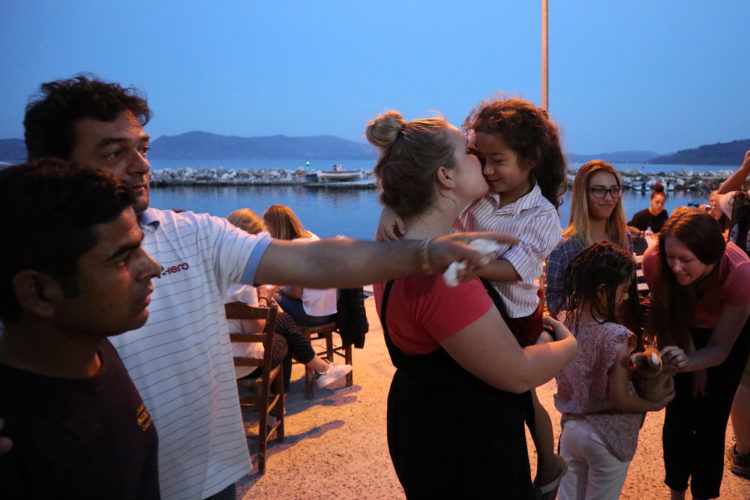
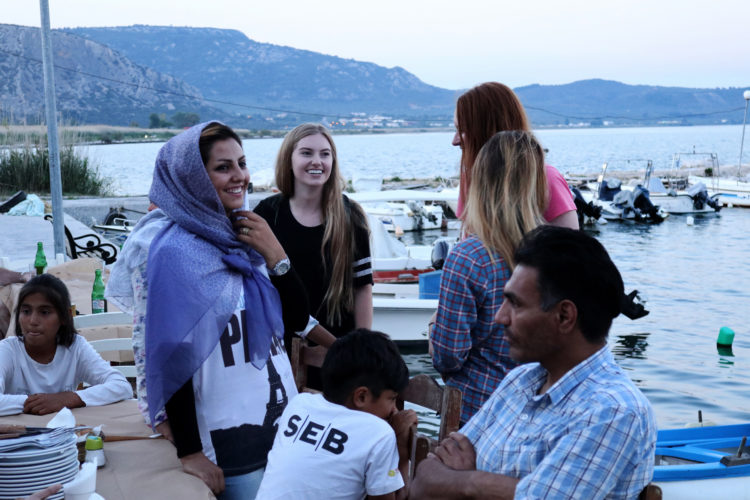
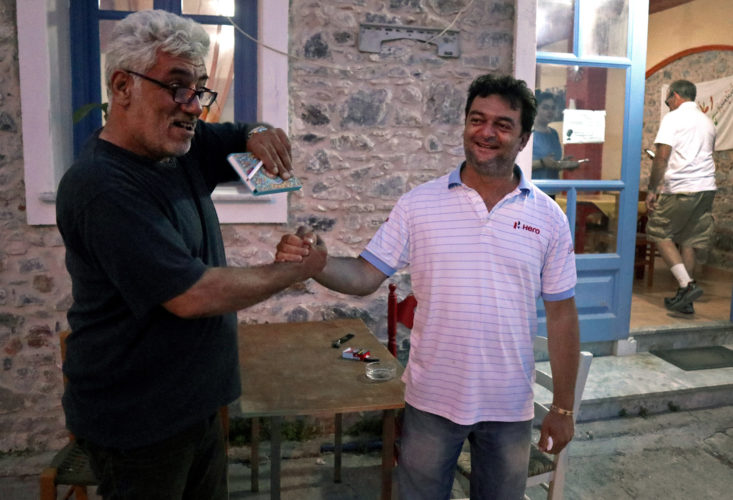
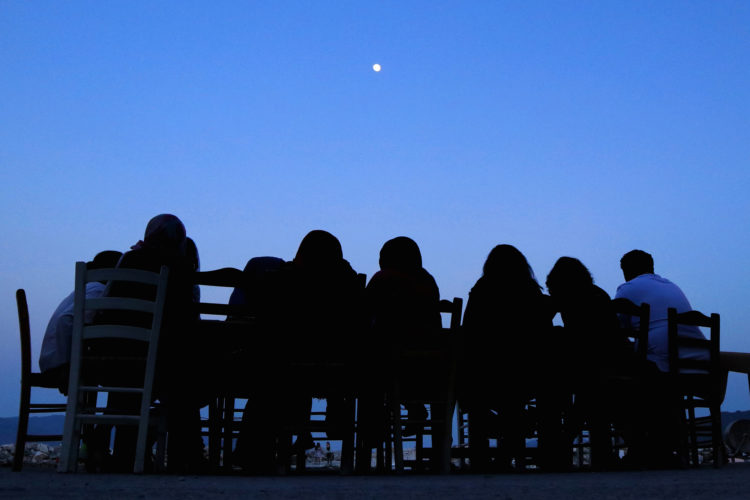
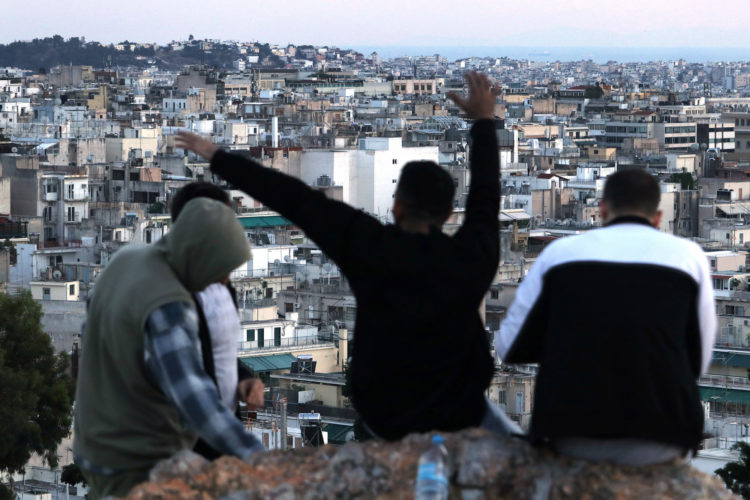
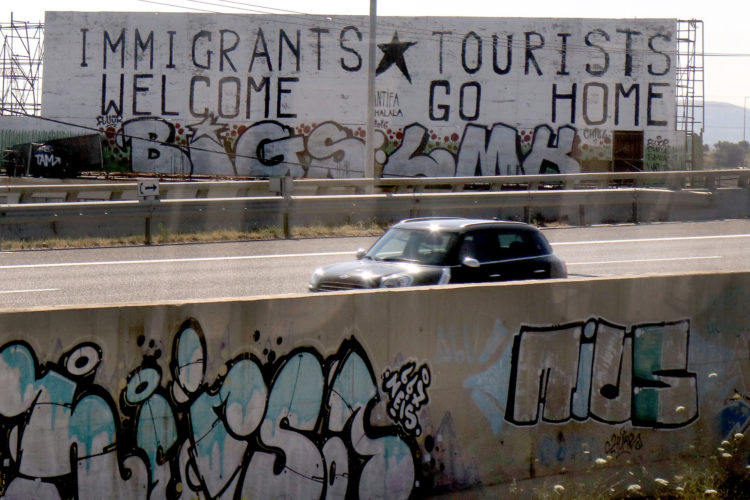
Lesvos has been Ground Zero for Greece since the beginning of the crisis. Separated from Turkey by a mere six-mile (10k) channel, Lesvos is one of five Greek islands that house large numbers of refugees. At the height of the influx in 2015, some 5,000 refugees were landing on the beaches daily. Most arrived in overcrowded boats, often operated by opportunistic smugglers. Nearly 4,000 refugees have drowned trying to reach Europe (E.U.) from Turkey, and Africa, including three-year-old Alan Kurdi, whose lifeless body depicted in a photo shocked the world.
Asylum claims are handled by the country where migrants first land. The process is painstakingly slow, and can often take months or years. Refugees often remain in limbo for long periods, trapped in deplorable camp conditions, unable to achieve the freedom they had hoped to find.
In the beginning, many on Lesvos generously welcomed the asylum-seekers. In the village of Skala Sikamnias, just across the sea from Turkey, two villagers received a Nobel Peace Prize nomination for their efforts saving thousands of refugees. And countless volunteer-run non-profits have assisted migrants.
Today in Lesvos, roughly 11,000 refugees remain, more than double the local population. Although the numbers crossing the Aegean Sea are down, hundreds are still arriving regularly. In 2018, the UNHCR reported that for every 18 people crossing over the Mediterranean, one person dies, usually by drowning. The danger has not lessened on the so-called Eastern Mediterranean route, which remains one of the busiest and most dangerous routes in the world for migrants.
On the island of Lesvos, there has been an outpouring of generosity from the locals who have welcomed the migrants and asylum-seekers. Non-governmental organizations (NGOs) have also played a significant role, as many volunteer-run non-profits have been established across the island to assist migrants. In 2018, there were 114 NGOs with over 7,000 volunteers active in Lesbos, an island with a population of just about 86,000 people.
While there have been complaints that some of the NGOs and volunteers pose problems to authorities -recently some members of NGOs were accused of smuggling migrants from Turkey to Greece -most organizations provide critical or life-saving help. While I was there, I spent time with some of these volunteer groups. Movement on the Ground has made efforts to build a more self-sufficient community-like atmosphere within the Kara Tepe refugee camp and has worked to improve conditions here by creating a campus-like atmosphere. One Happy Family, a community center that provides ongoing support for refugees, offers a creative and welcoming environment, with a wide range of assistance such as language classes, a gym, internet cafe, and more. The non-profit was started in February 2017 by Swisscross, with many partner organizations, and is operated exclusively by young volunteers from around the world.
On March 7, 2020, a devastating fire badly damaged the One Happy Family facility. Police told local news outlets that the fire happened at a time of “intense tension on the island” between locals and the refugee community, and the cause of the fire is under investigation.
Home For All is a harbor-side local restaurant in Skala Sikountos Lesvos, owned and operated by Nikos and Katarina Katouris. Every night the couple invite 15-30 refugees from the nearby Moria or Kara Tepe camps to eat for free in a picturesque outdoor dining area. Home receives assistance and funding from friends and volunteers who purchase food and offer donations.
“Everyone has the same right to be free from hunger, to feel dignity, and to feel at home regardless of their nationality and asylum status,” says Nikos. “Our philosophy is to feed people, not by simply giving them food, but feeding their need to be part of a community and showing them a future in which they have a meaningful place.”
Eric and Philippa Kempson, longtime residents on Lesvos, have helped thousands of refugees since the migration began in 2015. It began early one morning while Philippa was taking their daughter to school. They spotted some people getting off a small boat near their home. They could tell they were from somewhere else: the women wore full-length attire and headscarves, the men carried young children and lugged knapsacks, and everyone was frantically trying to get their footing on the slippery rocks. They rand down to the beach to help, and have since dedicated their lives to helping the refugees come ashore safely.
“The world arrived at our doorstep, after years of an insulated life,” says Philippa. “You cannot as a human drive past people in need like that. You just can’t do it. So we stopped and we started to help.”
But two-years later, the migration hasn’t stopped. The Kempsons have come under criticism from local Greeks for helping refugees, and claim they have been threatened numerous times by neighbors. “People seem to be under the sort of misconception that if you don’t help, they wouldn’t have come,” says Philippa. “We’ve actually been told that if we’d let more of them drown at the beginning then it would have stopped them from coming. It’s bizarre that rescuing people can be taken as encouraging them.”
- Read full story by Thomas E. Franklin in i24News.
- See documentary film by Thomas E. Franklin on the Kempson’s relief efforts.
Syrian family seeks asylum
When I met them in June 2017, the Al Rahmouns had been living like vagabonds for over a year already, after bombs destroyed their home in Hama, Syria and forced them to flee the brutal civil war. Hosem, his wife Manar, and their two daughters Sara, 10, and Hala, 12, escaped to another part of Syria, before walking clear across Turkey to the Mediterranean coast. They then hired a smuggler to take them by rubber raft to the Greek Island of Samos, before getting transferred to a refugee camp in Athens where they applied for asylum in Europe (EU).
The conditions at the camp were filthy; it felt like a prison. Manar said it was so dire she had resorted to sucking on the ears and faces of her children to keep them clean. After a few weeks, they moved out of the camp and into a squat in an abandoned high school in Athens which had been transformed into a commune-like center for refugees, run by a group of activists. Squats are technically against the law in Greece since the occupants are not paying rent, but after the 2009 financial collapse, the Greek government generally looked the other way. And because Greece is so overwhelmed with refugees, the local government officials are glad to have the help.
At the school, the Al Rahmouns split all the duties with the other families, and slept on the floor in a classroom room full of strangers, with only a draped bed sheet for privacy. Conditions were only slightly better than the camp. With no money, and the children suffering from PTSD, they were desperate.
Then in June 2017, their fortunes changed after they were discovered by two sisters in New York who wanted to help. Yudhisty Saridjo and Maiya Kim spotted a photo of them on HumanWire’s Tent-to-Home website and were struck by how the girls reminded them of themselves as young girls. The sisters are jewelry designers, and they donated 10% of all sales of their online business to help the family. They were able to then move into their own one-room apartment in a safe neighborhood. For Hosem, who constantly worried about his family’s safety, the new apartment was a much-needed relief from the refugee camps and the squat. Now they had their own bathroom, a kitchen, comfortable beds, and some privacy. On the day they moved in, Manar and the girls were so overjoyed they could hardly contain themselves.
For the next few months, they lived in the one-room apartment in Athens as they awaited the results of their asylum application with the EU, all the while not knowing what the future would hold. They finally received asylum in late 2017, about six months after these photos were taken. They have since settled in a town near Hamburg, Germany, after Manar paid a smuggler to get out of Greece to reunite with other family members living in Germany, while Hosem and the girls remained in Athens. The strategy to separate from the family was very risky and could have resulted in deportation back to Syria for all of them. But their plan worked, as the EU is generally sympathetic to separated families, and Germany is quicker to process asylum cases than Greece, where they are inundated with applications.
The family is now reunited and doing well, says Hosem. The girls are currently attending school and making up for nearly two years of missed education, and they are learning to speak German. The eldest daughter Hala wants to study to become a pharmacist. They like to ride bikes together.
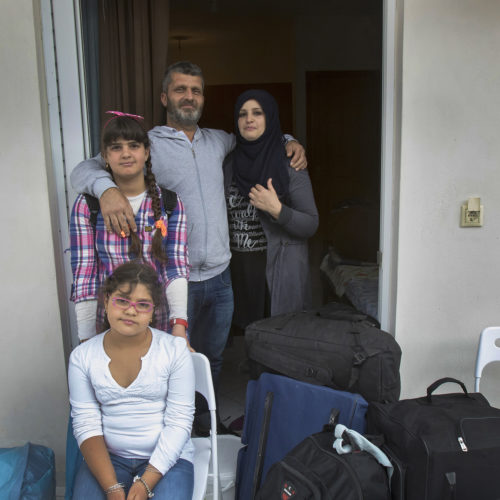
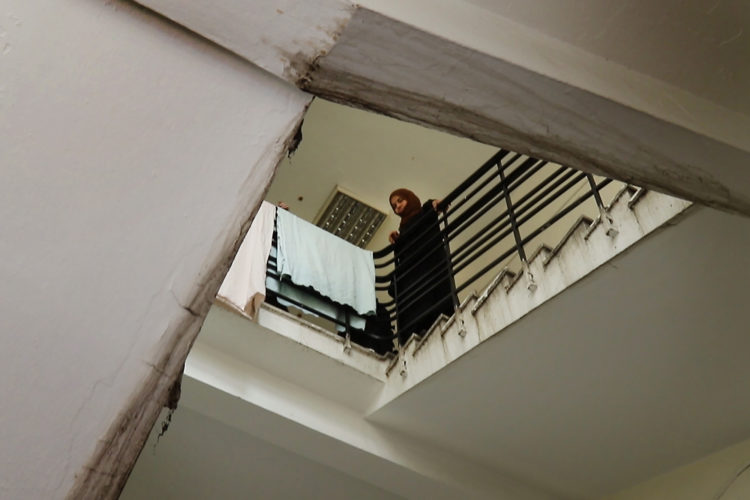
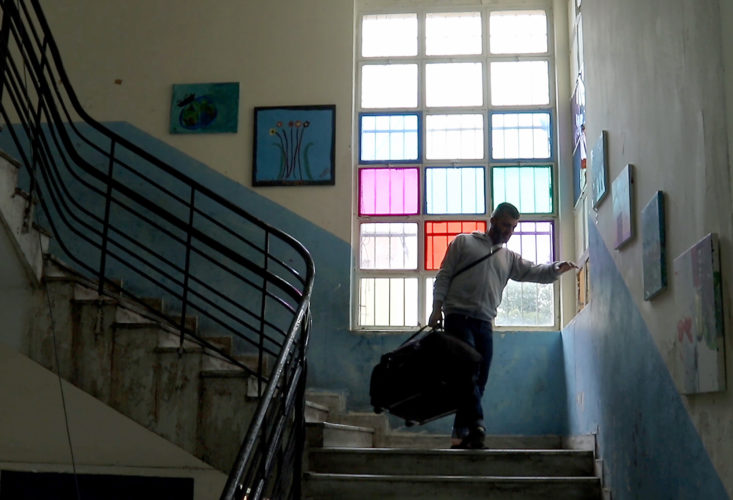
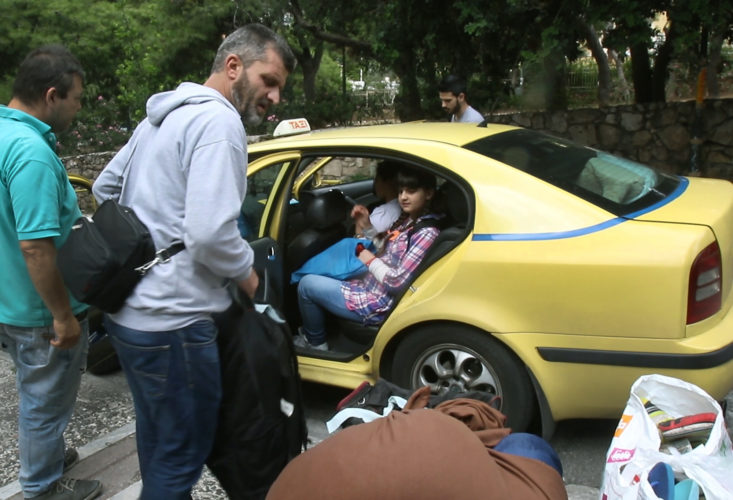
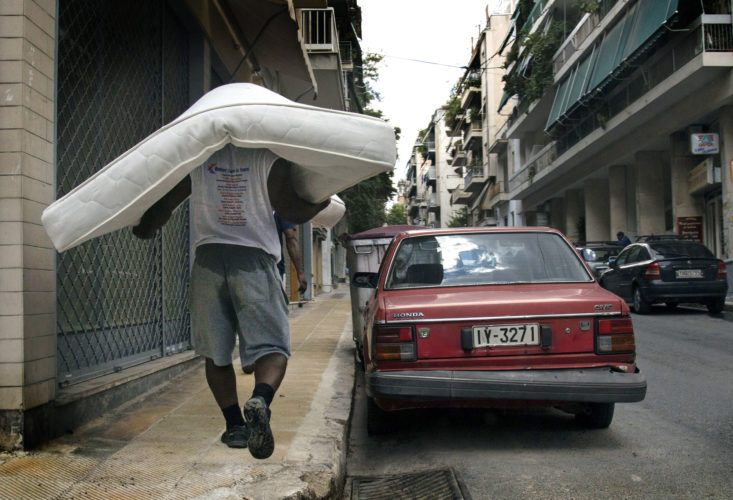
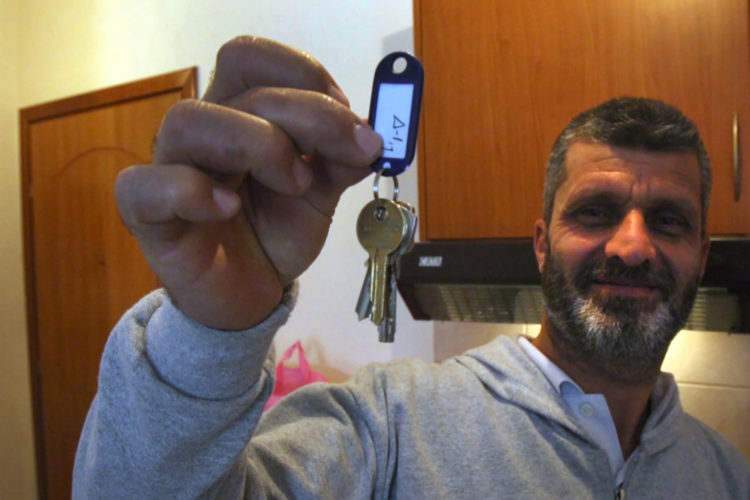
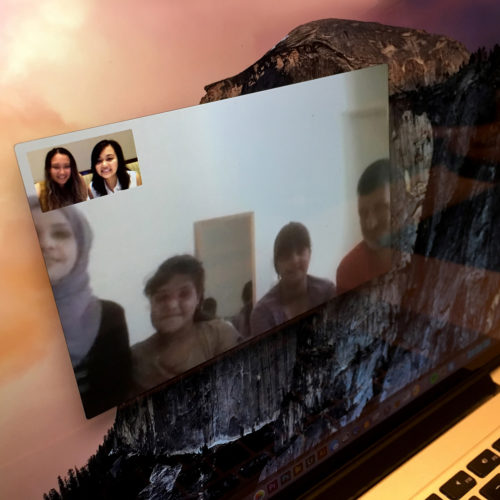
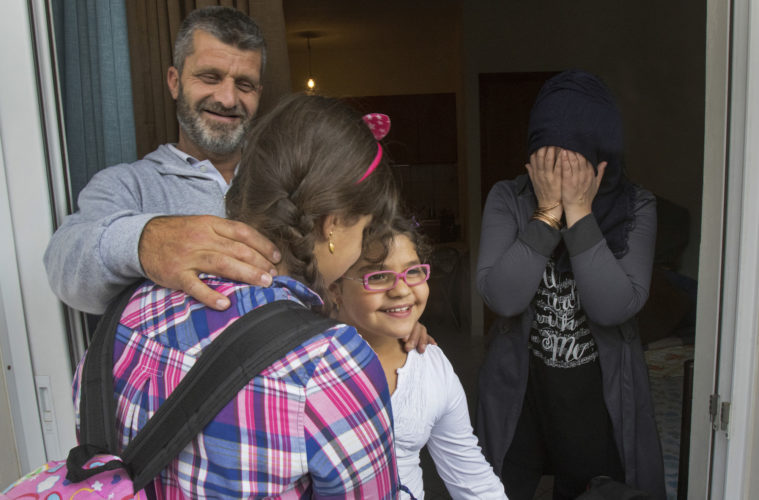

HumanWire
In 2017, my reporting on the Al Rahmouns uncovered that Andrew Baron, the founder of HumanWire, the Colorado-based non-profit that helped the Al Rahmouns, had been stealing money from the NGO. In October 2018, he was arrested for taking more than $130,000 from the organization. Over a hundred refugee families were subject to evictions from their apartment due to insufficient payments. Luckily, some of HumanWire’s volunteer staff members interceded on their behalf to provide the rent money and living expenses for the family before they moved to Germany.
- Read full story in Denver Post, co-reporting and photos on September 29, 2017.
- Baron is charged. Story and Photo essay published in Denver Post November 20, 2017
- Baron pleaded no contest on October 2018, to a felony charge of charity fraud and was sentenced to a one-year deferred sentence, and ordered him to pay $26,999.97 in restitution and perform 40 hours of community service.
























